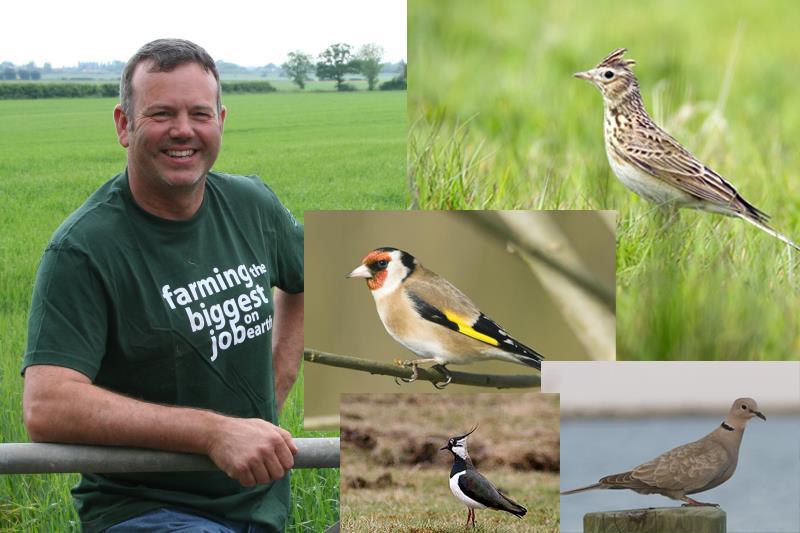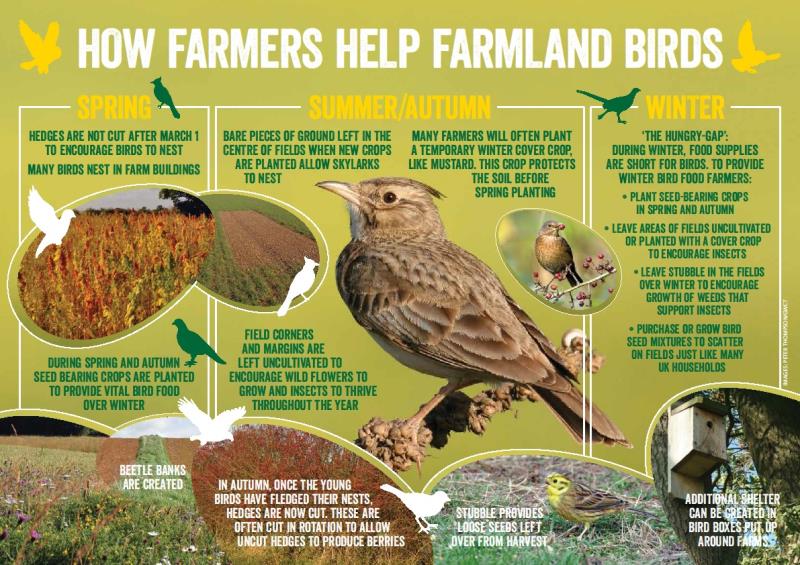Farming can throw up its challenges, and I am not just talking about the current economic situation, though that doesn’t help. Our industry is asked to deliver on many things as we produce food, often with high expectations of the end results.
There is continued change in the wildlife we see on our farms, as there has been for decades, if not centuries. The world is a very different place now to what it was in 1970, when many surveys hark back to – and many critics use this as a harsh lesson in all the bad things about farming in 2016.
Yet I, and many farmers like me, realise that this oft-painted picture is far from the truth. Over 70% of us have for much of the last 10 years being actively undertaking work on our farms to provide space for wildlife – this has been funded by stewardship schemes largely, but there has also, through the , been a huge amount of un-measured un-paid for work carried our too.
Find out more about farming and the environment on our Back British Farming site
Since 2014 there has been a 134% increase in nectar and pollen rich area managed by farmers. 30,000 km of hedges have been planted in the last 25 years. Fertiliser use is down, with 35% less nitrogen and 60% less phosphate fertiliser being used, and pesticide use is also down, with 50% less active ingredient applied and half the available actives available to use to ensure economic yields of safe affordable foods.
This clearly paints the opposite picture to the one often purveyed, and to read the stories we hear in the media, you’d think that all this effort was being overlooked.
More of blogs...
- Blog: Fruit and veg - why don't we eat more? - Lee Abbey, horticulture adviser
- Tesco's commitment must be followed up - Ruth Mason, Chief Food Chain Adviser
- Why Farming Matters penny drops for children - FACE chairman and Open Farm Sunday founder, Ian Pigott OBE
- Farming is a sector worth investing in - NFU chief science and regulatory affairs adviser Dr Helen Ferrier
- NFU sets sights on fair prices, despite dash to discount - Oliver Rubinstein, assistant food chain adviser
I know through survey work on my farm that the areas I have devoted to wildlife and the way I farm the land have contributed to improving the ‘bird count’ on the farm significantly. The difference for me in the coming years is that I now will receive no funding to continue this work, which presents me with a real dilemma?
We know it’s a different story on farm, and it is vital we demonstrate this to the wider public, and to ourselves and fellow farmers. Offering a few hours of your time, ideally with an enthusiast as they have sharper eyes and more importantly keener and well trained ears will help continue to build the picture the has developed over recent years.
Most importantly it shows that we farmers are interested, we are bothered, we recognise that we have an important role in the countryside.
There are winners and losers in the bird world, and it is clearly a complex of many things which sees some species struggling, while others flourish. Farming and environmental management are not necessarily the problem, but the solution. So get counting, submit your findings and back the BFBC.

